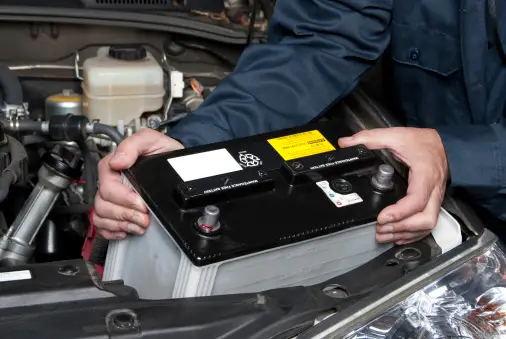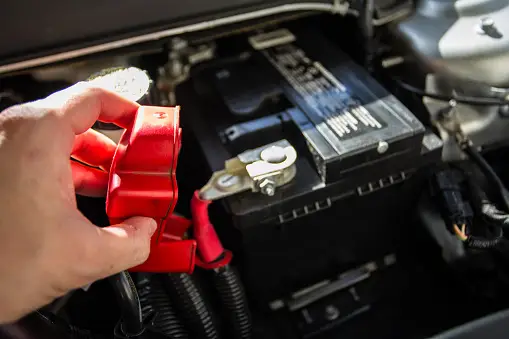July 5, 2023
8 SIGNS IT’S TIME TO REPLACE THE CAR BATTERY
Here are eight signs that may indicate it’s time to replace your car battery:
- Diminished Cranking Power: If you notice that your car is having trouble starting or it takes longer than usual to start the engine, it could be a sign that the battery is losing its cranking power.
- Weak or Dead Battery: If your battery is consistently weak or completely dead, even after recharging, it’s a clear indication that it needs to be replaced.
- Age of the Battery: Most car batteries have a lifespan of three to five years. If your battery is approaching or has surpassed this age range, it’s a good idea to consider getting a new one, even if you haven’t experienced any issues yet.
- Swollen or Bloated Battery Case: If you notice that your battery case is swollen or bloated, it could indicate a battery failure. This is usually caused by excessive heat or overcharging.
- Corrosion and Leakage: Check the battery terminals for any signs of corrosion or leakage. Corrosion appears as a white, ashy substance around the terminals, while leakage may manifest as a fluid seeping from the battery. Both issues can impact the battery’s performance and indicate the need for replacement.
- Electrical Issues: If you experience electrical problems in your vehicle, such as flickering lights or malfunctioning electronics, and you’ve ruled out other causes, a failing battery could be to blame.
- Frequent Jump-Starts: If you find yourself frequently jump-starting your vehicle or needing assistance to start it, it’s likely a sign that your battery is no longer holding a charge effectively.
- Warning Light: Modern cars are equipped with warning lights that indicate battery-related issues. If your battery warning light comes on and stays illuminated, it’s essential to have the battery checked and potentially replaced.
Remember that these signs are not definitive proof that your battery needs to be replaced, but they can serve as indicators that it may be time to get a new one. If you’re unsure, it’s best to consult with a qualified mechanic or have your battery tested at an auto repair shop.

What percentage should I change car battery?
There isn’t a specific percentage at which you should change your car battery. The decision to replace a car battery is typically based on its overall condition, performance, and any signs of failure or deterioration. However, if you’re referring to the battery’s state of charge, it’s generally recommended to replace or recharge the battery if its charge level drops below 75%. It’s important to keep in mind that the state of charge alone may not be the sole determining factor for battery replacement. Other factors such as age, performance, and signs of battery failure should also be considered. If you’re unsure about the condition of your car battery, it’s best to have it tested by a professional or consult the manufacturer’s guidelines.

Should I replace battery at 80%?
Replacing a car battery solely based on its state of charge, such as at 80%, is not a common practice. The state of charge refers to the amount of charge remaining in the battery, and it fluctuates based on usage and charging cycles. While a low state of charge can be an indicator of a weak or failing battery, it is not the only factor to consider.
When deciding whether to replace a car battery, it’s important to assess other factors such as the battery’s age, performance, signs of deterioration, and any symptoms of battery failure. If your battery consistently struggles to start the vehicle, exhibits signs of weakness or failure, or is reaching the end of its typical lifespan (usually 3-5 years), it may be time to replace it.
If you’re uncertain about the condition of your car battery, it’s advisable to have it tested by a professional mechanic or at an auto repair shop. They can evaluate the battery’s overall health and provide recommendations based on its specific condition.
